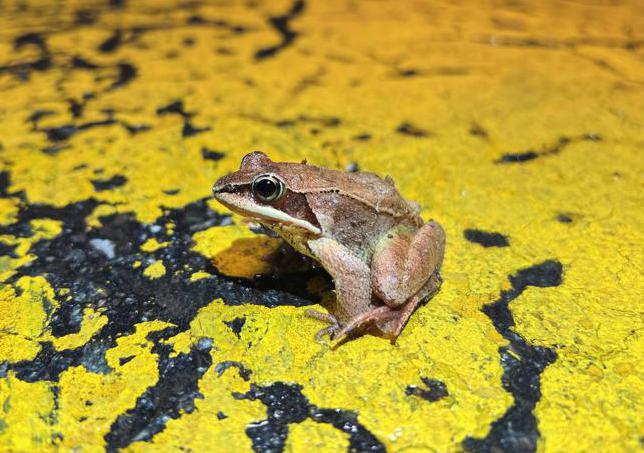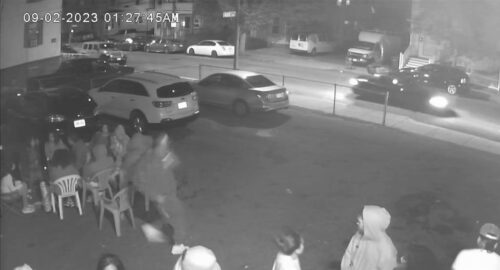The volunteers gathered by the roadway wet with warm rain, their anticipation running high.
“Is it going to be big? Is it going to be nothing?’’ was the question on Brett Amy Thelen’s mind. Then the frogs started emerging from the forest, faster than the volunteers could count — hundreds of wood frogs and spring peepers embarking on their annual migration to the vernal pools where they mate and lay their eggs.
At that moment, Thelen, science director at the Harris Center for Conservation Education in Hancock, N.H., had the answer to her question: Big. Late last Sunday into the early hours of Monday morning was, as she calls it, a “big night’’ in Keene and the start of migration season.
Along with a team of volunteers, Thelen counted 365 wood frogs, 518 spring peepers, and a few other species, totaling 899 critters that crossed the road in the four hours the team was standing guard.
These road crossings pose a big threat to the tiny amphibians, which can easily get crushed by passing vehicles. Drivers are often completely unaware of how much death they’re inflicting, she said.
“When you’re out there on these nights, and you see the numbers that are not surviving, it’s pretty stunning,’’ said Thelen.
She pointed to one study that found 95 percent of all vertebrate road kill was reptiles and amphibians. Another study found that a local spotted salamander population could be wiped out in as little as 25 years if measures weren’t taken to protect them. And a third study found more than 30,000 dead amphibians on one 2-mile stretch of road over four seasons.
The crossing site where she was stationed in Keene is one of two locations where the city has agreed to close the roadway when there’s a big night of amphibian activity. In places where roadways remain open, Crossing Brigade volunteers give the critters a lift so they can get across the road more quickly and with less casualties.
“It’s a bigger problem than most people see because a lot of this is happening on dark, rainy nights when we’re not out and about so much,’’ she said, adding that one car can inflict a lot of damage.
But Thelen hopes other communities will consider road closures on busy nights. And, she said, just staying home on warm, wet nights can help reduce the casualties.
“Save your errands for the next day,’’ she said. “You could save dozens of lives just by doing that on any rainy night’’ in the spring and summer.
Amanda Gokee can be reached at amanda.gokee@globe.com. Follow her @amanda_gokee.


